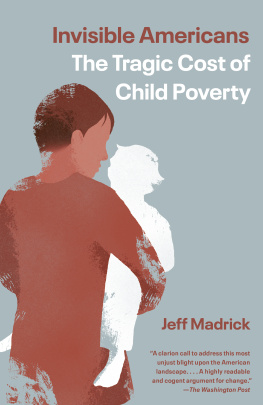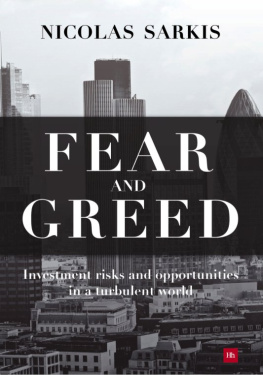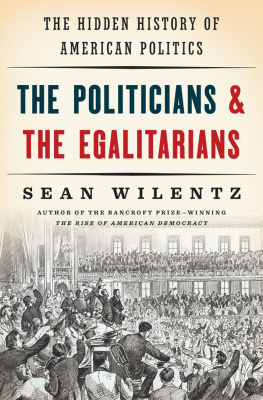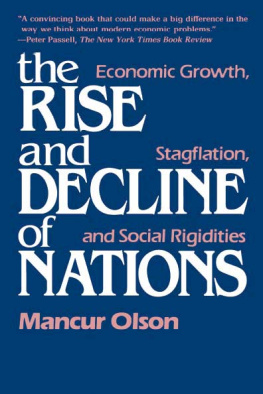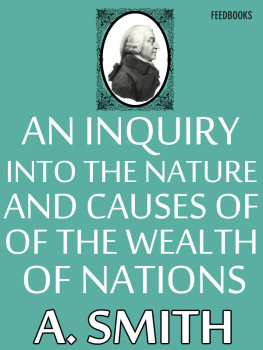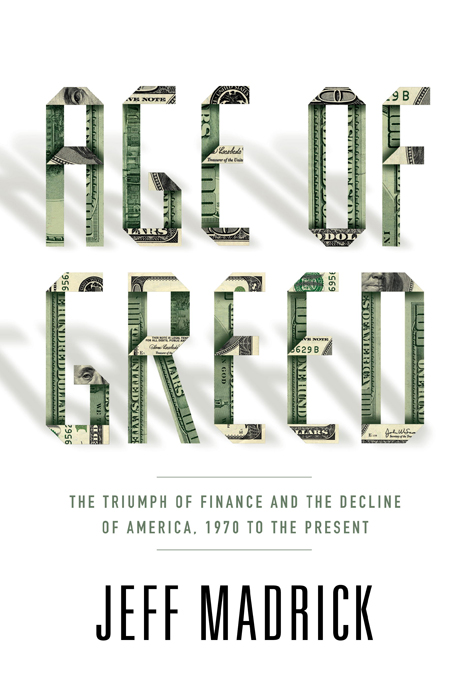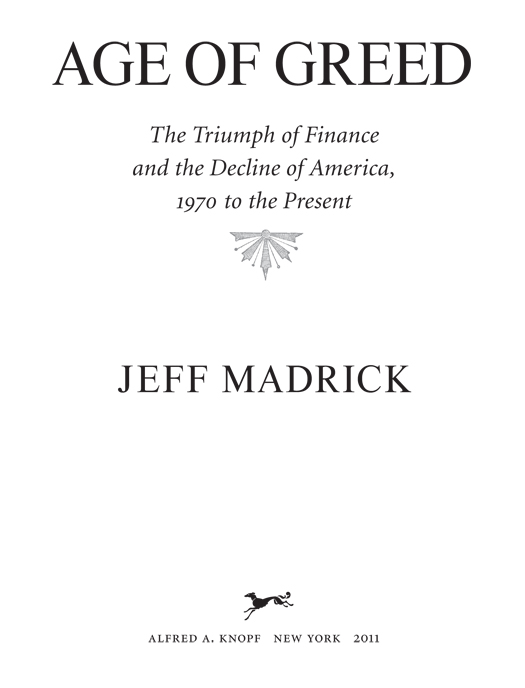THIS IS A BORZOI BOOK
PUBLISHED BY ALFRED A. KNOPF
Copyright 2011 by Jeff Madrick
All rights reserved. Published in the United States by Alfred A. Knopf, a division of Random House, Inc., New York, and in Canada by Random House of Canada Limited, Toronto.
www.aaknopf.com
Knopf, Borzoi Books, and the colophon are registered trademarks of Random House, Inc.
Library of Congress Cataloging-in-Publication Data
Madrick, Jeffrey G.
Age of greed : the triumph of finance and the decline of America, 1970 to the present / Jeff Madrick.
p. cm.
Includes index.
eISBN: 978-0-307-59671-0
1. WealthMoral and ethical aspects. 2. Financial crisesUnited StatesHistory. 3. United StatesPolitics and government20th century. 4. United StatesPolitics and government21st century. I. Title. HC 79. W 4 M 33 2011 330.97300922dc22 2011003399
Jacket design by David J. High, highdzn
v3.1
For Kim
Contents
One
REVOLUTION
Prologue: Lewis Uhler
Believer
1. Walter Wriston
Regulatory Revolt
2. Milton Friedman
Proselytizer
3. Richard Nixon and Arthur Burns
Political Expediency
4. Joe Flom
The Hostile Takeover and Its Consequences
5. Ivan Boesky
Wanting It All
6. Walter Wriston II
Bailing Out Citibank
7. Ronald Reagan
The Making of an Ideology
8. Ted Turner, Sam Walton, and Steve Ross
Size Becomes Strategy
9. Jimmy Carter
Capitulation
10. Howard Jarvis and Jack Kemp
Tapping the Anger
11. Paul Volcker, Jimmy Carter, and Ronald Reagan
Revolution Completed
Two
THE NEW GUARD
12. Tom Peters and Jack Welch
Promises Broken
13. Michael Milken
The Magnificent
14. Alan Greenspan
Ideologue
15. George Soros and John Meriwether
Fabulous Wealth and Controversial Power
16. Sandy Weill
King of the World
17. Jack Grubman, Frank Quattrone, Ken Lay, and Sandy Weill
Decade of Deceit
18. Angelo Mozilo
The American Tragedy
19. Jimmy Cayne, Richard Fuld, Stan ONeal, and Chuck Prince
Collapse
Introduction
This book starts with a relatively unknown man named Lewis Uhler, a Southern Californian, who, like his father before him, hated the New Deal. He and others like him, who came of age in the 1950s, feared their personal liberty was in constant danger of being taken away by big government. Many of them were sincere, and most were angryespecially because in the 1950s and 1960s they werent being heard. But they laid the foundation for a new age.
In those years, most Americans believed the federal government was good for them. Washington created far-reaching financial, social, and economic reforms in the Depression and managed the massive war effort in the 1940s. In the 1950s it built highways, set out to send men into space, and subsidized housing. In the 1960s, it created Medicare, expanded Social Security, adopted regulations to protect consumers and workers, passed long-awaited civil rights guarantees, and developed antipoverty programs. Progressive taxation to pay the bills was widely accepted as just. All the while, the American economy grew rapidly and wages doubled adjusted for inflation for workers at every income level.
Perhaps more than any other factor, punishingly high inflation in the 1970s changed all of this. Americans panicked. Well before incomes became highly unequal or the wealthy gained undue political power with outsize campaign contributions and well-financed lobbying organizations and think tanks, Americans came to believe that government had gone too far. The ideology of the Lewis Uhlers of America, long dormant, began to gain influence. Soon social programs were curtailed. Regulations were eliminated and weakened. Uhler among many others participated in a tax revolt that started slowly but then spread rapidly, well before Ronald Reagan was elected president. The new persistent refrain was that big government held all Americans back. The narrative came to dominate the public discourse.
Greed will always be with us, but it rises and falls with the times. Some rebalancing between government and business may have been necessary by the 1970s, and some reworking of government programs was needed. But the reforms went blindly ahead. Vital purposes of government were rejected. An age of greed did not begin in the 2000s. It started decades earlier, and the crisis of 2008 was its culmination, and probably not its end.
This book is about how this shift came about, and how profound its influence has been. It contends that the rise of an age of greed since the 1970s was not the result of the inevitable forces of history or of a natural swing of a political pendulum. The new age was made by people, and how they reacted to crisis and change. Much damage was done along the way.
tells the story of this revolution. Presidents, policymakers, and economists are critical to the history. But it is mostly a story of business pioneers who fought government regulation or, through innovation, escaped government oversightall the while diminishing the power of government and reinforcing the changing national attitudes. The 1970s set the stage for a different America.
Once government was no longer a counterweight and a new political ideology cleared their path, financiers led the way. Wall Street changed radically. tells these stories. Debt more than innovation and technological progress became the economys driving force. Financial businesses doubled in size compared to the economy and profits grew still faster. Hundreds of billions of precious American savings were wasted.
The new age started with Walter Wriston, the most innovative, aggressive, and admired of the nations commercial bankers, head in the 1970s of First National City Bank, later Citicorp. He was an adamant believer in laissez-faire economicsminimal government intervention. He revolutionized banking by circumventing and often ignoring New Deal regulations. Financial deregulation started with him, but three times in thirty years the bank he built nearly went out of business due to the hundreds of millions of dollars of bad loans it made, saved only by federal intervention. The story of Citibank runs through this entire history.
Not all those who are the principal focus of a chapter were blatant practitioners of greedsome not at all. Tom Peters, the famed management consultant, was much the opposite. Paul Volcker, the stringent chairman of the Federal Reserve, was mostly oblivious to financial gain. George Soros, the hedge fund manager, gave much of his fortune to causes that were detrimental to his personal financial interest. The ages philosopher, Milton Friedman, was not intent on getting rich. They all contributed importantly to this history, however.
These separate stories are integral parts of a large picture. Ultimately, they fit together. Most of the people in this book were not wholly destructive. History is never so simple. Some were not destructive at all. But most of those discussed here took the economy along an unfortunate, tragic path for their own purposes from which it may not be possible to turn back.
One REVOLUTION



